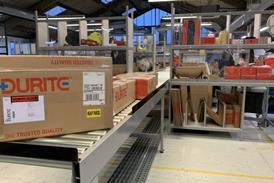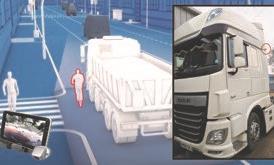
With UK banks under constant fire for failing to lend to British businesses, it is refreshing to talk to a banker who is positively eager to work with UK operators.
Graham Winslet is sales director of BNP Paribas Rental Solutions, a wholly-owned subsidiary of BNP Paribas, one of the strongest banks in the world (rated AA by Standard & Poor’s). He is responsible for growing the CV contract hire business, which currently owns around 15,000 CVs in France and the UK.
The UK business, initially named Artegy was founded in 1989 and was run by BNP Paribas’ international car leasing subsidiary Arval. “In 2005 Arval’s car contract hire business had become so developed that the commercial vehicle fleet was becoming marginalised,” explains Winslet. “At that point, the business was handed over to BNP Paribas Leasing Solutions.”
In June 2012 the division was rebranded BNP Paribas Rental Solutions as part of a European branding alignment, and at the same time the decision was taken to relocate the UK’s operations centre from Manchester to the Basingstoke head office. This is planned to be completed in June this year, a move that will inevitably see many staff changes.
Growth
The bank’s target is to build the UK commercial vehicle fleet in the next couple of years. “Our ambition is to grow our UK fleet to 5,000 vehicles organically,” says Winslet. “Accessibility to funding is assured, and, as well as working hard in the market to attract new customers, we are marketing our services to clients of both the bank and our sister company Arval.”
He is however targeting specific niches within the CV market, and will not be going after large haulage fleets. “Our strategy is not to compete with the manufacturers’ captive finance operations as their focus is more heavily geared toward hauliers and rental companies supplying large numbers of tractor units,” says Winslet. “That is not a core market for us.”
BNP Paribas Rental Solutions does not own any repair and maintenance facilities, instead allowing operators to use their preferred maintenance providers, be they third party or even in-house. The only caveat is that warranty-related work is undertaken by manufacturer-approved suppliers.
“Our strategy is to support and work with the customer without changing his life,” says Winslet. “Our target market is not hauliers who use vehicles as their business but companies such as pharmaceutical and food manufacturers, aggregates suppliers, builders merchants and plant hire firms for example who use vehicles within their business.”
Specialist
BNP Paribas Rental Solutions focus is on vehicles fitted with specialist kit such as fridges, cranes, tail-lifts etc. It will also look at any vehicle over 3.5t and trailers, though again, its focus is on specialist products such as tankers, tippers, drop-sides and double-deckers.
Unlike another large well known French-owned contract hire specialist, Winslet is not interested in the public sector. “We were extremely active in pursuing local authority tenders for some time – that was a justifiable strategy but with hindsight, we found the overall opportunity for our contract hire product was limited and with that in mind, we curtailed that activity,” he says.
Nor is the company particularly targeting own account operators with inhouse fleets.
“The economy has been tough for several years now so companies that wanted to change their ownership policy would by and large have done so by now,” he says. Some industry estimates now put the percentage of CVs owned by their operators as low as 5%, with contract hire and operating leases now far more popular than outright ownership.
Winslet sees his major competitors as the likes of Fraikin, CVL, Petit Forestier, Hitachi and Ryder - albeit that they have a larger UK footprint currently. “We are one of the last bank-owned players in the market,” he says. Winslet adds the withdrawal of ING from the CV market last year has not had a major impact in the contract hire space.
BNP Paribas Rental Solutions does not offer standalone short-term rental; its core offer is a full range of fleet management options on a contract hire basis with maintenance, on terms of typically one to 10 years. “We offer an all-in, menu-driven service,” Winslet says. “It includes everything you would expect such as repair and maintenance, periodic maintenance inspections, health and safety compliance, replacement vehicles, tyres etc.”
Competitive
This means BNP Paribas Rental Solutions is not competing simply on the cost of debt – although Winslet says the bank is competitive on interest rates, it is unlikely to be the cheapest if all an operator wants is asset finance. “We don’t look to offer stand alone operating leases – that is an extremely competitive market” he says. “The benefit of contract hire from us is that we provide a real value added service and work closely with the customer to manage the fleet throughout its life. We remain responsible for the vehicle maintenance – with an operating lease the lender signs the deal and walks away. The finance provider will not see the vehicle again for the duration of the contract and have no idea how well it has been maintained until it is inspected prior to its return. For us, the job starts when we sign the contract.”
This approach helps us to manage the residual value risk, as vehicles are more likely to be in good condition at the end of the contract. “We carry the residual value risk in-house – there are almost no third party buybacks,” says Winslet. “We remarket returned vehicles ourselves after they have been independently inspected and returned to ‘Used Kit Direct’ which is our own trade site."
Right vehicle
While residual values are clearly an important consideration when pricing a contract hire deal, Winslet insists that aspect plays no part in favouring any vehicle over another when recommending a specific vehicle for a customer. "We work with our customers to specify the right vehicle for the job, at a competitive price,” he says.
The current average contract term is five and a half years, and in common with the rest of the market many BNP Paribas Rental Solutions customers often look to extend their contract and run vehicles for longer. “I would expect approximately a third of our contracts ending this year to extend,” Winslet says. “That is partly because some operators will want to delay purchasing Euro-6, and partly because while the economic outlook remains uncertain, they don’t want to commit to new vehicles. With the sort of specialist vehicles we provide, it is not always easy for operators to spot rent replacements cost effectively.”
“None of the manufacturers we speak to appear happy with sales volumes at the moment and everyone is understandably pushing very hard,” he says. “Many businesses have not invested in updating their assets since the early years of the downturn but cap-ex decisions are still being delayed. Some deals that were expected to complete last summer are only just being closed now.”
Increasing costs
But there is a limit to how long vehicle life can be extended without rapidly increasing maintenance costs. “At some point it inevitably becomes uneconomic to extend a contract,” he says. “As vehicles age, their susceptibility to down time increases which is something that customers simply cannot afford to have happen. Eventually operators have to invest in new equipment”.
The uncertainty over Euro-6 and the shortage of vehicles available to UK operators to allow them to get experience with the new technology is not helping, Winslet adds.
Winslet has seen no real sign - yet - of the expected spike in sales of Euro-5 vehicles ahead of the switch to the predicted, more expensive, and complex Euro-6 in 2014. “It is still not clear what the pricing will be for Euro-6 and many operators are uncertain whether to hedge their bets and take Euro-5 now,” he says. “We have been surprised how few customers have been eager so far to buy Euro-5s – we expected a bigger rush. There is now a fear that if they don’t order Euro-5 soon, it will be too late as order slots with the manufacturers are reportedly filling up quickly.”

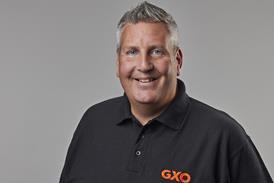

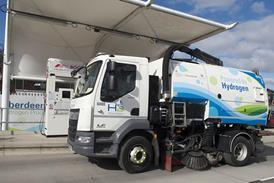


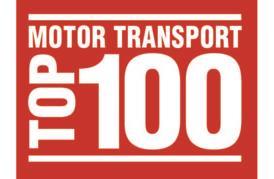


![Mercedes-Benz_eActros_600_(1)[1]](jpg/17820_mercedesbenz_eactros_600_11_978080.jpg)

